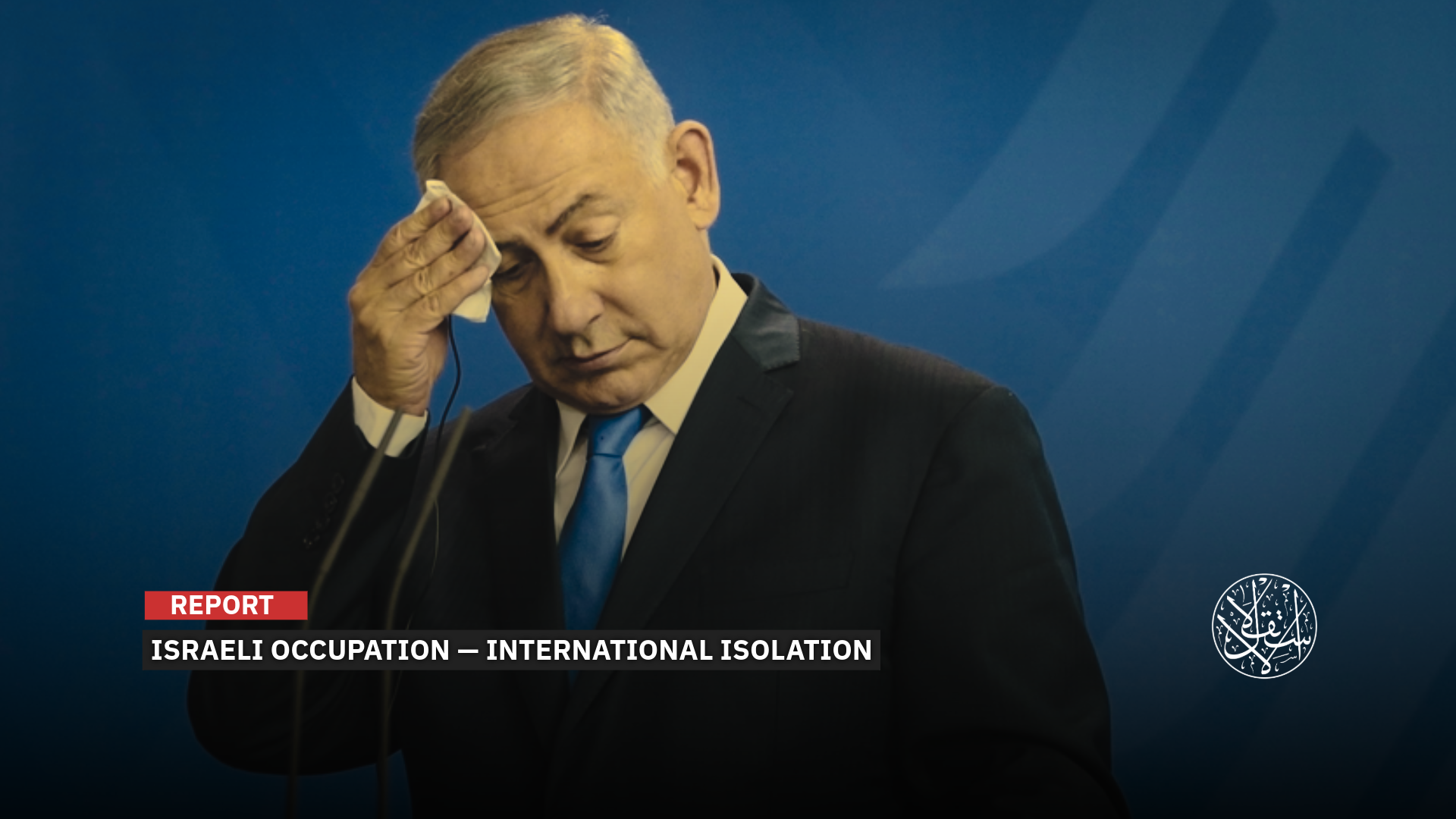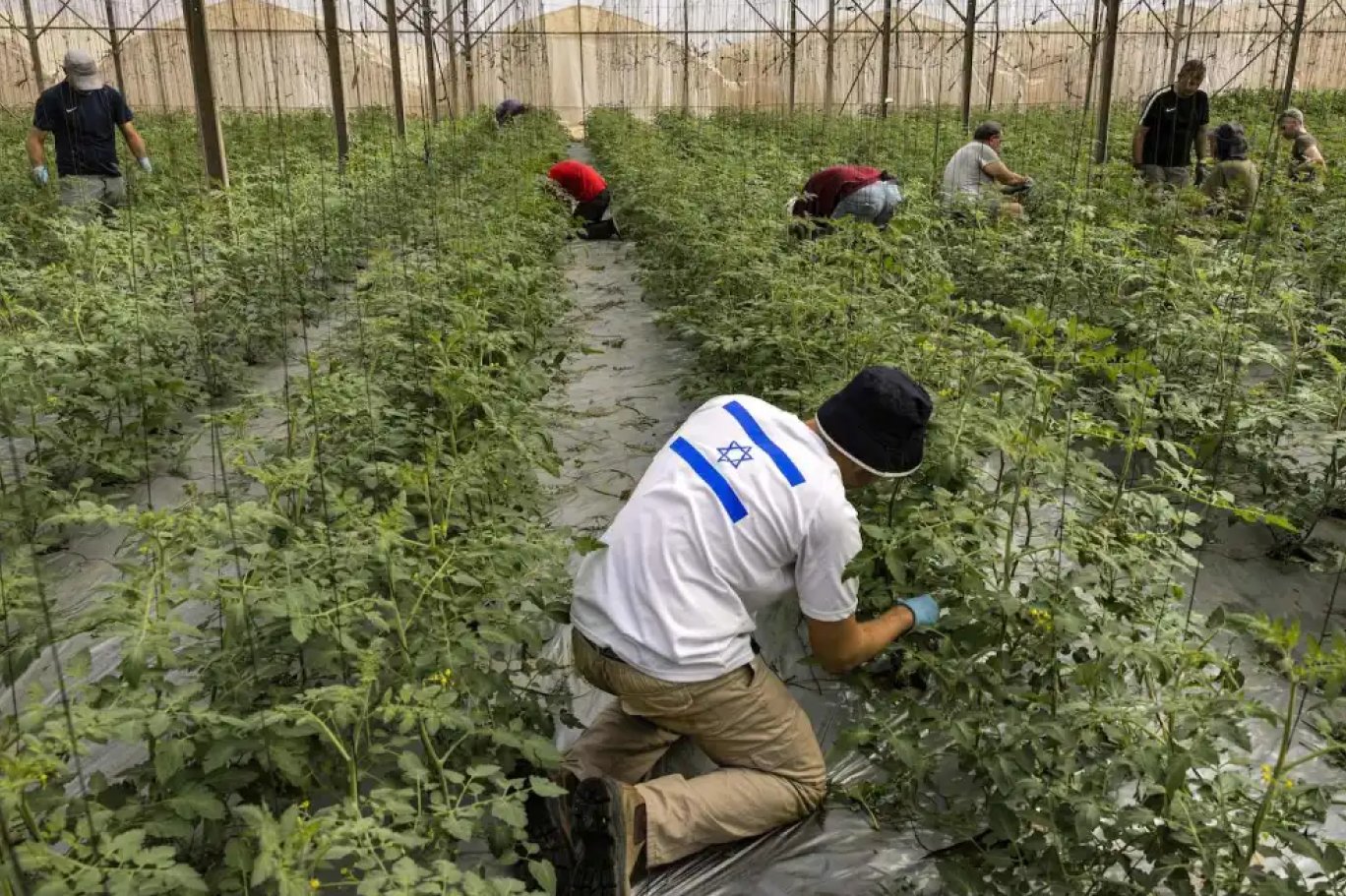Forced Self-Sufficiency: Which 'Israeli' Sectors Are Feeling the Brunt of the Boycott?

The Israeli economy could be set back years by the international boycott.
Before his trip to New York in September 2025, Israeli Prime Minister Benjamin Netanyahu had to leave journalists and accompanying officials behind on the Wing of Zion VIP aircraft to save fuel.
The move, announced by Netanyahu’s office, followed his need to take a longer route to the UN General Assembly after several countries barred his aircraft from their airspace over accusations that he committed war crimes in Gaza.

Boycott and Isolation
The episode underscored how deeply the Israeli Occupation is feeling the weight of growing political and economic isolation as Western nations step up measures and sanctions over its two-year genocide on Gaza.
While several European countries have imposed individual punitive measures, questions are mounting over how “Israel” would be affected if the European Union were to impose full sanctions, including suspending the joint free-trade agreement with Tel Aviv. Analysts are also asking which sectors the Israeli Occupation can realistically make self-sufficient and which would be hit hardest if the boycott widens.
On September 15, Prime Minister Benjamin Netanyahu acknowledged for the first time that “Israel” is entering “a kind of isolation,” saying the country would have to adapt more and more to an economy with self-sufficiency characteristics.
“We are entering a kind of isolation, and we will have to increasingly adjust to an economy with characteristics of self-sufficiency,” he said.
Speaking at a Finance Ministry conference, Netanyahu added that “Israel” must act accordingly and produce its own weapons so it will not be dependent on the world.
Netanyahu’s government has long dismissed warnings of impending international isolation over the war on Gaza and its far-right policies.
In recent months, Britain, Spain, Canada, and Slovenia have halted arms exports to “Israel,” with some canceling multimillion-euro contracts. Eleven other nations—including Britain, France, Belgium, Canada, Malta, Australia, and Portugal—officially recognized the State of Palestine at the UN meetings in September, bringing the tally of recognizing countries to 159 of the UN’s 193 members.
Opposition leader Yair Lapid called Netanyahu’s comments “insane,” arguing that “isolation is not fate” but the result of the government’s misguided policies. “They are turning Israel into a third-world country and not even trying to change the situation. Things can be different. Israel can return to being successful and well-received with a thriving first-world economy,” he posted on X.
Yair Golan, head of the opposition Democrats party and a former deputy army chief, also blasted the premier’s remarks.
“Netanyahu greets Israelis for the new year with this message: To preserve my throne, I need eternal war and eternal isolation. You will sacrifice the country, the economy, your children’s future, and your ties to the world,” he said on X.
Yedioth Ahronoth wrote that Netanyahu’s talk of looming “political isolation” is no mere warning but a grim reality spreading “like wildfire” beyond politics to affect “Israel’s” economy, culture, academia, sports, tourism and more.
The paper warned on September 16 that if “Israel” were to raze Gaza completely and “expel” its population, the reaction would be severe—downgrading diplomatic ties, recalling ambassadors, even cutting relations—steps European officials have threatened should Tel Aviv also annex the West Bank.
“No propaganda will help,” the daily cautioned, listing possible repercussions: economic sanctions, cultural boycotts, academic and sports bans, arms embargoes and even personal restrictions such as visa requirements.
It noted that trade between the EU and “Israel” totaled €42.6 billion in 2024: “Imagine what happens if that bloc, our biggest trading partner, decides to sanction us with its money.”

Sectors Under Strain
“Israel’s” 10-million-plus population, growing at about 1.12% a year, enjoys a relatively high standard of living and diverse food preferences. Yet the country’s limited occupied land and water resources constrain its ability to achieve food self-sufficiency, driving up production costs and consumer prices.
A September 3, 2025 report by the Global Agricultural Information Network (GAIN), compiled by the U.S. Foreign Agricultural Service, found “Israel” carries a large agricultural trade deficit and relies heavily on imported grain and other staples.
The EU and the United States remain “Israel’s” top export markets, highlighting the stakes should the European bloc cut economic ties. In 2024, the Israeli Occupation imported $9.8 billion worth of agricultural goods, much of it for food processing, while exporting just $2.8 billion. Over the past decade, agricultural imports have nearly doubled, with virtually all components of the sector imported, the report said.
The food-service industry has also been hit hard by the aggression on Gaza, falling tourism, restaurant and hotel closures, rising prices and labor shortages. GAIN warned that extended war in Gaza could drag on growth, push inflation to 2.6% in 2025, and further weaken both supply and demand.
Turkiye’s trade ban on the Israeli Occupation has compounded shortages of nuts, figs, olive oil and flour, forcing importers to seek alternative suppliers. Recovery has been uneven across the country, with construction, farming and tourism among the slowest to rebound due to a lack of foreign workers.
“Israel’s” economy still leans heavily on its high-tech sector, which generates about 57% of total exports and employs hundreds of thousands. That dependence on global markets underscores the potential damage from deeper isolation.
Even the war industry has felt the squeeze. Spain recently scrapped two major deals worth nearly €1 billion: a €700 million order for 12 high-mobility rocket-launch systems from Elbit Systems and a €287.5 million purchase of 168 anti-tank launchers from “Rafael Advanced Defense Systems.” Slovenia, Canada, Belgium and the Netherlands have also suspended or scaled back arms sales, including ammunition and other matériel that could be used in Gaza, to pressure the Israeli Occupation to respect the international-law and end the genocide.

Impact and Fallout
Bloomberg reported on September 19 that “Israel” faces mounting economic and trade pressures as its war on Gaza drags on, with no credible sign of a cease-fire and Tel Aviv pushing deeper into the enclave.
The agency said repeated call-ups of army reservists over nearly two years of fighting have disrupted the business environment. Nimrod Vax, co-founder of the data-security firm BigID, told Bloomberg that 20% of his company’s 600 employees, a quarter of them based in “Israel,” were serving in the military at the same time, hampering long-term projects and critical R&D.
Roughly 130,000 reservists, equal to about 3% of “Israel’s” workforce, are expected to be mobilized for the Gaza aggression.
The $580 billion economy is suffering its sharpest slowdown in more than two decades outside the Covid-19 shock. Output remains below pre-war levels in real terms, the fiscal deficit has widened, and the government has turned to record borrowing in local and international bond markets to fund the war effort.
Bloomberg estimated that the economy is about 7% smaller than it would have been without the war—a setback comparable in scale to the global financial crisis.
Investor anxiety is rising over the length of the war and the prospect of sanctions, while exporters, especially in the tech sector, fear mounting isolation amid global outrage over the genocide in Gaza.
Small and midsize businesses, which employ around 60% of the labor force, have been hardest hit by the manpower shortage. “Israel’s” Social Security data show that 5% of self-employed workers called up for more than 30 days had to shut down their businesses by the end of 2024.
Channel 13 economics analyst Matan Hodorov warned that “Israel’s” growing isolation is driving an exodus, particularly among the educated class. More than 80,000 people, including doctors, engineers and tech specialists, left “Israel” in 2024, he said, depressing population growth to just 1% over the past Hebrew year and threatening deep political and economic shifts by 2026.
The tech sector, long “Israel’s” growth engine and heavily reliant on foreign talent and investment, is also losing ground. The business daily Calcalist reported on September 22 that half of “Israel’s” R&D workforce now operates abroad and that roughly 8,300 tech professionals, about 2.1% of the sector’s employees, left between October 2023 and July 2024, an average of 825 departures a month.
“Israel’s” farm industry is feeling the strain as well. Public broadcaster Kan 11 highlighted the plight of pomegranate grower Ben Cohen, who said European markets have been shut to Israeli produce since October 7, 2023. The boycott, he added, has spread beyond pomegranates to mangoes, peppers, avocados, and citrus as countries such as Germany, the Netherlands, Belgium, Britain, and France sharply reduced imports, a trend that began with consumer refusals to buy goods labeled “Made in Israel” before becoming official policy.
Yedioth Ahronoth reported on September 15 that half of Israeli exporters have lost contracts and 76% have seen their exports hit.
The paper cited exporters who said many companies in Europe and the United States have refused to renew contracts, while major retail chains, especially for agricultural goods, have suspended imports of Israeli products until further notice, threatening entire harvest seasons.
Faced with the boycott and growing isolation, Ron Tomer, head of “Israel’s” Manufacturers Association, warned that the Israeli brand has been severely damaged and cautioned the economy could be set back years.
Sources
- Netanyahu says Israel should invest in influence operations to counteract isolation
- 5 Impacts of Political Isolation [Hebrew]
- Report Name: Exporter Guide Annual
- Israel’s Long War in Gaza and Mass Call Ups Strain High-Tech Economy
- The Silent Exodus Threatening the Economy [Hebrew]
- For first time, Netanyahu acknowledges Israel’s slide into isolation










